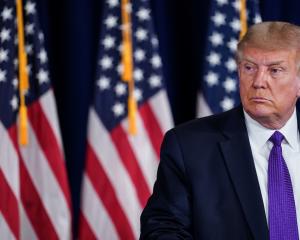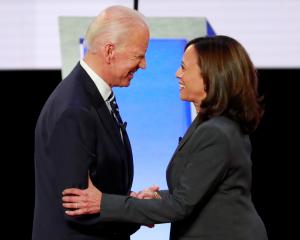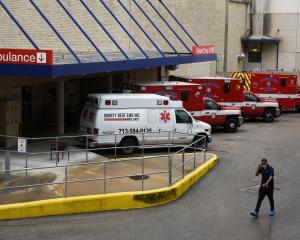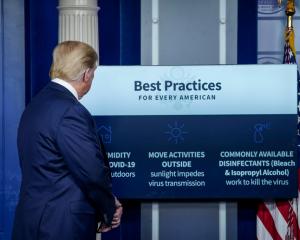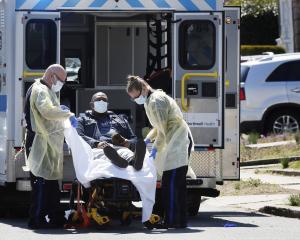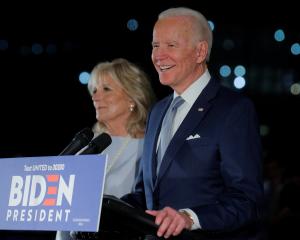
Cabinet members said the situation was grave, but insisted the administration was doing everything it could.
Under threat of tornadoes, the president shunned helicopter travel and drove from New Orleans to tour a close-to-the-water staging area where the government and well-owner BP are trying to keep the 30-mile long oil slick from causing even more damage. As of now, it appeared little could be done in the short term to stem the oil flow.,
At his first stop, Obama questioned Adm. Thad Allen, the Coast Guard commandant, about the potential impact on shipping lanes in the Gulf.
The leaking oil well is not only an ecological disaster but a potential political hazard, as well, depending on how the public judges the Obama administration's response. Then-President George W. Bush stumbled in dealing with Hurricane Katrina in the Gulf in 2005, leaving the impression of a president distant from the immense suffering. His presidency never recovered.
Homeland Security Secretary Janet Napolitano said any comparison between the ruptured BP oil well and Katrina was "a total mischaracterisation" and that the government has taken an "all hands on deck" approach.
Administration officials have been at pains to explain that Obama's late March decision to expand offshore oil exploration could be altered as a result of the spill and that stricter safety rules would doubtless be written into leases.
In reality, oil companies and the government lack the technology to prevent the damage from a well gushing masses of oil, killing wildlife and tainting a delicate ecosystem. The oil washing ashore could ruin the coastal fishing industry.
While the government has mobilized masses of equipment to scoop up, burn and block the oil from moving ashore, the tools to contain the ecological and economic damage washing devastatingly toward the coast were akin to big game hunting with a pellet gun.
Allen said the volume crude oil spewing from the damaged wellhead a mile deep in the Gulf of Mexico could climb to 100,000 barrels a day, with 60 days to 90 days needed for BP to drill relief wells to stem the flow. He spoke to the obvious urgency of stopping the flow of crude.
"The difference between 1,000 and 5,000 barrels a day (original estimates), when you look at the potential discharge of 100,000, leads me to believe that there are a lot of inaccuracies associated with trying to estimate flow from a broken pipe at 5,000 feet," Allen said. "That's the reason it's so very, very important we focus on stopping this leak right away."
If BP's unmanned submarines are unable to activate a failed shut-off valve on the sea floor - attempts have been futile for days now - it could take 6 days to 8 days for the oil company to try to smother the spewing wellhead with a 74-tonne metal and concrete box.
That was the estimate Sunday from Lamar McKay, chairman and president of BP America, who appeared on ABC's "This Week." The oil slick now threatens not only the Louisiana coast but also the beaches of neighbouring Mississippi and further east along the Florida Panhandle.
White House spokesman Robert Gibbs told reporters with the president that Obama was briefed on the spill for 50 minutes during the flight from Washington by homeland security and counterterrorism adviser John Brennan and energy adviser Carol Browner. Chief of staff Rahm Emanuel rounded out the presidential party.
Gibbs said Brennan and Browner went "through a series of scenarios," while Obama wanted to know "what was the latest on our first, our biggest priority, which is capping the well."
Like Napolitano, Gibbs said the president was visiting "to make sure that we are continuing to do all that is humanly possible."
Interior Secretary Ken Salazar tried to assure Americans that BP, rather than taxpayers, would pay for what will likely become the nation's worst oil disaster.
"We will not spare any effort on the part of the United States of America to make sure that all of their resources are brought effectively to address the problem."
The bill's going to be an extraordinary hit on BP's bottom line. The sea shore and the animals and fishermen who depend on them will pay, perhaps, an even heavier cost.




